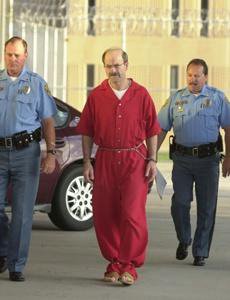 On the morning of August 19, 2005 Rader was taken to his new home, the El Dorado Correctional Facility in El Dorado, Kansas. He was processed, shaved and photographed. All entering inmates undergo an intial period of evaluation and testing, to determine how and where they will be housed in the jail.
On the morning of August 19, 2005 Rader was taken to his new home, the El Dorado Correctional Facility in El Dorado, Kansas. He was processed, shaved and photographed. All entering inmates undergo an intial period of evaluation and testing, to determine how and where they will be housed in the jail.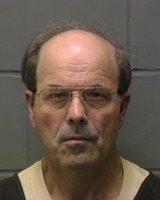 On October 12, 2005 a hearing was held at the prison regarding Rader's privileges in jail. District Attorney Nola Foulston again made the plea to Judge Greg Waller to deny drawing materials and access to media and interviews, stating Rader has the ability to turn normal things like newspaper and magazine underwear advertisements into fantasies of bondage and torture. Investigators had found a huge number of what Rader called "slick ads" that had been altered by him into pictures of bondage stashed away in his office and home. Rader's public defender Steve Osburn argued that basic first amendment rights were being denied.The outcome of the hearing was that Judge Waller agreed with all prosecutor recommendations. Waller also ruled that Rader must register as a sexual offender and must pay restitution to victims. Prison officials have indicated that Rader has been classified as a specially managed inmate, but that not all of the restrictions may be enforceable. He will be permitted to earn privileges such as access to television, radio, newspapers and news magazines.
On October 12, 2005 a hearing was held at the prison regarding Rader's privileges in jail. District Attorney Nola Foulston again made the plea to Judge Greg Waller to deny drawing materials and access to media and interviews, stating Rader has the ability to turn normal things like newspaper and magazine underwear advertisements into fantasies of bondage and torture. Investigators had found a huge number of what Rader called "slick ads" that had been altered by him into pictures of bondage stashed away in his office and home. Rader's public defender Steve Osburn argued that basic first amendment rights were being denied.The outcome of the hearing was that Judge Waller agreed with all prosecutor recommendations. Waller also ruled that Rader must register as a sexual offender and must pay restitution to victims. Prison officials have indicated that Rader has been classified as a specially managed inmate, but that not all of the restrictions may be enforceable. He will be permitted to earn privileges such as access to television, radio, newspapers and news magazines.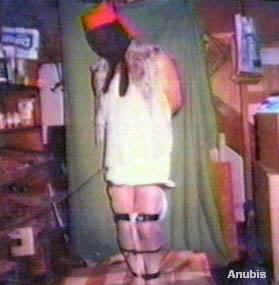 Another odd fact that came to light as a result of the evidence seized from Rader's "mother lode" was his obsession with self-bondage. Detectives found a number of photos Rader had taken of himself all tied up in various ways. He was also fond of dressing up in items stolen from his female victims. Using a Polaroid camera and a tripping mechanism, he took many photos of himself in these ways. See BTK Bondage Photos and Artwork for several examples of his photos and artwork.
Another odd fact that came to light as a result of the evidence seized from Rader's "mother lode" was his obsession with self-bondage. Detectives found a number of photos Rader had taken of himself all tied up in various ways. He was also fond of dressing up in items stolen from his female victims. Using a Polaroid camera and a tripping mechanism, he took many photos of himself in these ways. See BTK Bondage Photos and Artwork for several examples of his photos and artwork.Some notable television programs were produced in 2005 on the subject of Dennis Rader. In August shortly before the sentencing Dateline NBC aired a two hour special, 31 Years of the BTK Killer,
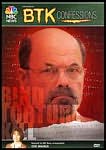 featuring interviews with Rader in prison by Robert Mendoza, a forensic psychologist who had been hired by the defense to evaluate him. It also reviews the crimes and some of the impact they had. A lawsuit was filed against Mendoza by the state of Kansas for permitting the unauthorized usage of the interviews, a charge Mendoza denies and says was the responsibility of the film crew. He had to settle the suit by paying $30,000, which is to be distributed among the families of the BTK victims. CBS 48 Hours Mystery aired an excellent program called BTK: Out of the Shadows, featuring the Wegerle family and also reviewing the history of the BTK case. CBS aired a television movie called The Hunt for the BTK Killer. The A&E network produced two excellent programs on the BTK case, including a special edition of Cold Case Files.
featuring interviews with Rader in prison by Robert Mendoza, a forensic psychologist who had been hired by the defense to evaluate him. It also reviews the crimes and some of the impact they had. A lawsuit was filed against Mendoza by the state of Kansas for permitting the unauthorized usage of the interviews, a charge Mendoza denies and says was the responsibility of the film crew. He had to settle the suit by paying $30,000, which is to be distributed among the families of the BTK victims. CBS 48 Hours Mystery aired an excellent program called BTK: Out of the Shadows, featuring the Wegerle family and also reviewing the history of the BTK case. CBS aired a television movie called The Hunt for the BTK Killer. The A&E network produced two excellent programs on the BTK case, including a special edition of Cold Case Files. In 2006 a low-budget film was released to video, BTK Killer. Possibly one of the worst films ever made, we specifically advise against seeing this film. It is a disgusting affront to everyone involved in the BTK case, particularly the victims and their families. Almost nothing at all in this film is true, everything is factually distorted in a most disgusting way involving insects and slaughterhouses and more. It is crude and fictitious, and horribly made as well.
In 2006 a low-budget film was released to video, BTK Killer. Possibly one of the worst films ever made, we specifically advise against seeing this film. It is a disgusting affront to everyone involved in the BTK case, particularly the victims and their families. Almost nothing at all in this film is true, everything is factually distorted in a most disgusting way involving insects and slaughterhouses and more. It is crude and fictitious, and horribly made as well.On October 20, 2006 a jury awared $1.1 million to former BTK suspect Roger Valadez, who had been arrested on December 1, 2004 but quickly exonerated by a DNA test. He had sued the then-owners of local Wichita station KSNW channel 3 for defamation and humiliation by broadcasting his name and address after his arrest. However, Roger Valadez died suddenly of a heart attack on November 27, 2006 well before the possibility of collecting any money.
 In January 2007 the city of Park City bought the small home in Park City where Dennis and Paula Rader had lived since the 1970s and raised their two children. It had been sitting empty since soon after the arrest. The selling price was reportedly, according to the Wichita Eagle, just under $60,000. The city tore the house down to improve access to a nearby small park in March 2007.
In January 2007 the city of Park City bought the small home in Park City where Dennis and Paula Rader had lived since the 1970s and raised their two children. It had been sitting empty since soon after the arrest. The selling price was reportedly, according to the Wichita Eagle, just under $60,000. The city tore the house down to improve access to a nearby small park in March 2007.In March 2007 some of the legal issues surrounding lawsuits in the BTK case were settled. Rader agreed to pay the victims' families $10 million and forfeit any media rights to his story. The families will also have any belongings that were seized as evidence during the investigation returned to them, and will also have rights to any other evidence seized from Dennis Rader. The families are likely to receive no money at all from this settlement, as Rader is effectively indigent. But it will permanently prevent him from profiting from his notoriety as a serial killer.
In 2007 three additional books about the BTK case were published. The editors of the Wichita Eagle have released Bind, Torture, Kill: the Inside Story of the Serial Killer Next Door. Rader co-worker Mary Capps has written My Boss was the BTK Serial Killer. Crime author and former profiler John Douglas wrote Inside the Mind of BTK, an impressively detailed look into the mind and life of Dennis Rader.
In 2008 the film Feast of the Assumption - The Otero Family Murders (also known as I Survived BTK) was previewed in a showing in Wichita. It follows the life of Charlie Otero, one of the three surviving Otero children, from the time before Dennis Rader was arrested through the trial and conviction and the aftermath of recovery. We're impressed by the work director Marc Levitz did in putting together this real life chronicle of unbelievable trauma and Charlie's refusal to be destroyed by what happened to his family. IMDB review.
In 2010 the Kansas Supreme Court threw out the lawsuit originally filed against KSN-TV in Wichita by Roger Valadez and still maintained by his estate. Reasons cited were the death of the plaintiff and insufficient evidence of extreme mental distress and suffering.
 Kristin Casarona, who originally intended to write a book about Dennis Rader based on her many visits to him in prison, has decided to not write a book and will donate all her materials to the victims' families, who will presumably destroy them.
Kristin Casarona, who originally intended to write a book about Dennis Rader based on her many visits to him in prison, has decided to not write a book and will donate all her materials to the victims' families, who will presumably destroy them. There has been recent concern about the spread of BTK "murderabilia" for sale on the Internet such as letters and poems written by Rader, or even soil samples from the site of his now-demolished home in Park City. There is no evidence Rader has ever profited from such sales, which appear to be the work of persons who specialize in serial killer memorabilia for profit. (Photos of Dennis Rader in 2009).
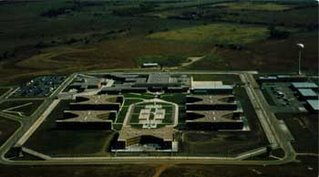 News about Dennis Rader since his assignment to the maximum security El Dorado Correctional Facility has been scant. He appears to have settled into the routine of the prison, but is kept well away from the general population for his own safety. His prison record shows only one minor infraction of the rules since his arrival there, which would be considered an overall good behavior record. His family, relatives and ex-wife had all intentionally stayed away from any media exposure and had never granted interviews until his daughter Kerri Rawson spoke out in 2014.
News about Dennis Rader since his assignment to the maximum security El Dorado Correctional Facility has been scant. He appears to have settled into the routine of the prison, but is kept well away from the general population for his own safety. His prison record shows only one minor infraction of the rules since his arrival there, which would be considered an overall good behavior record. His family, relatives and ex-wife had all intentionally stayed away from any media exposure and had never granted interviews until his daughter Kerri Rawson spoke out in 2014.Kerri spoke out regarding a movie based on a story by Stephen King, "A Good Marriage", concerning a husband who was a secret serial killer until his wife finds out about it. King had publicly stated the idea was inspired by the BTK killer and the relationship he had with his unknowing wife who never suspected him. Kerri said the publicity was wrong and hurtful and no such stated link or comparison should have been made publicly by King. She also revealed that despite the trauma of finding out she was BTK's daughter in 2005, she and her husband have gone on to lead productive lives and now have children of their own. She never has visited Dennis since he was arrested and has only sent an occasional letter since then.
In 2016 a new book about Dennis Rader was released, Confession of a Serial Killer: the Untold Story of Dennis Rader the BTK Killer, by Katherine Ramsland. This book relies on letters and telephone conversations between the author and Rader for large parts of the content, a voyage into his eerie mind as Rader describes some of his life events in his own words. The murders are described as mostly an erotic quest to gratify his bizarre paraphilic desires for killing.
Kerri continues to speak out occasionally about her father and the impact and trauma of finding out he was really a serial killer while being an apparently good parent. To date she has spoken to the Wichita Eagle for several articles, one of which has also appeared in Reader's Digest. She doesn't believe that all of the stories told by Rader in Ramsland's book are true, and that he thrives on the attention he gets from media and publications.
In 2017 Kerri Rawson announced she is writing her own book about her father and about her own struggles with depression and trauma and how to overcome these. It is expected to be published in 2018. (Photo of Rader with daughter Kerri at her 2003 graduation ceremony).
.
Photo of Dennis Rader in 2013, age 68.


